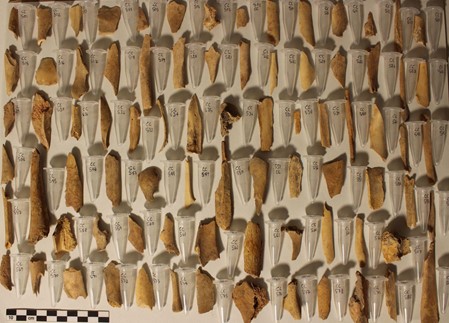FRACTURES
Discovering Faunal Diversity and Tracking Domestication Through Fragmented Bones.
The current economic scenarios of Neolithic livestock production in the northeastern Iberian Peninsula face significant challenges, primarily relying on a limited set of material evidence from well-preserved archaeological sites and faunal assemblages. Morphological traits, examined through zooarchaeology, only identify a small fraction of bones from prehistoric contexts, often constituting 30% or less of the faunal remains. This limitation particularly affects Epipaleolithic and Mesolithic sites, complicating the assessment of economic shifts and the persistence of food systems during and after the Neolithization process. As a result, uncertainty remains regarding the species diversity in Epipaleolithic, Mesolithic, and Neolithic assemblages, raising questions about species-specific management strategies and human interactions with vertebrate species. The FRACTURES project builds upon previous research aiming to review economic models of agro-food transition and early livestock production in the northeastern Iberian Peninsula through the use of zooarchaeology by mass spectrometry (ZooMS) to reveal the hidden taxonomic diversity of thousands of previously unidentifiable bone remains in a selection of Epipaleolithic, Mesolithic, and Neolithic contexts.
